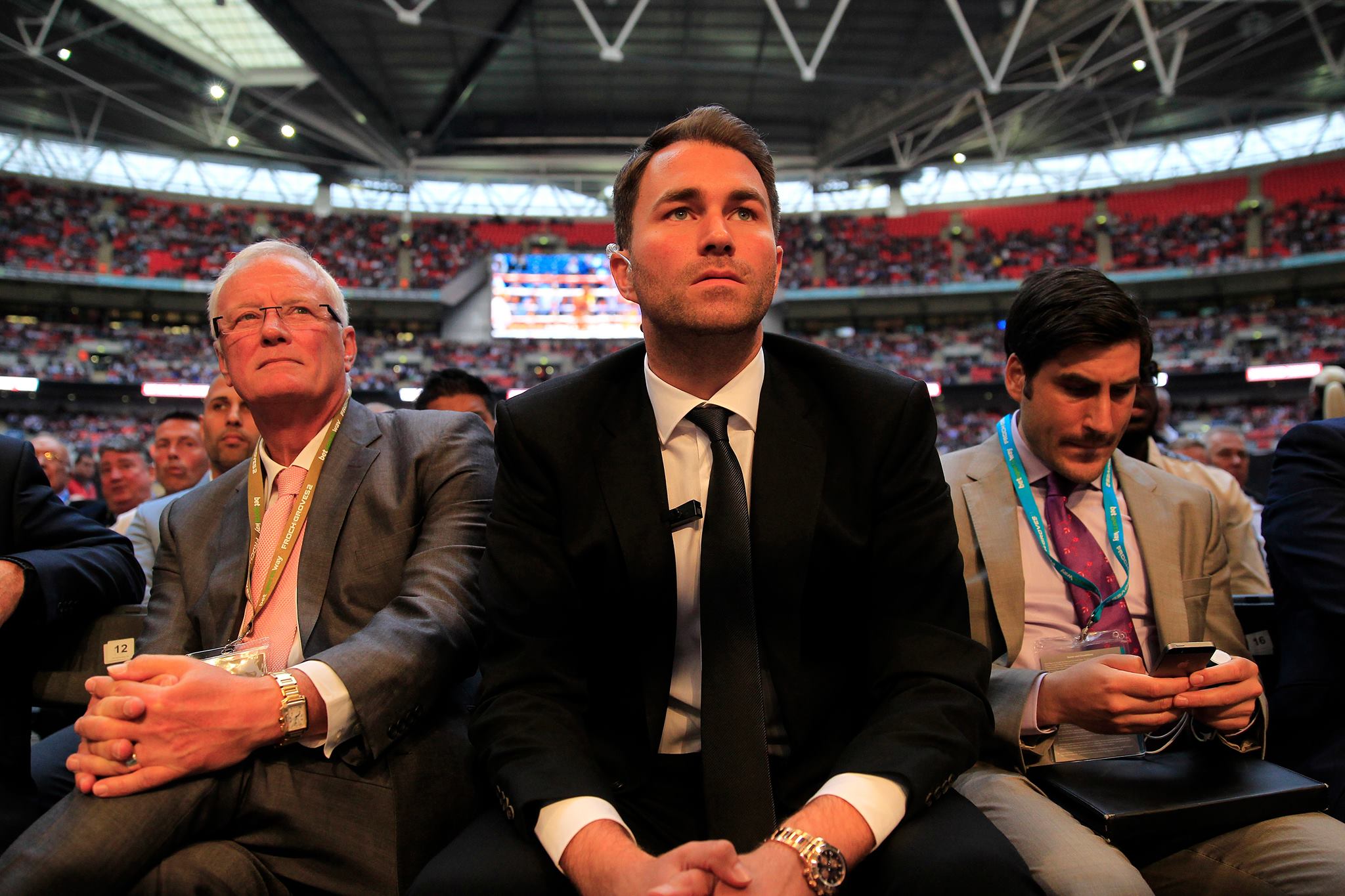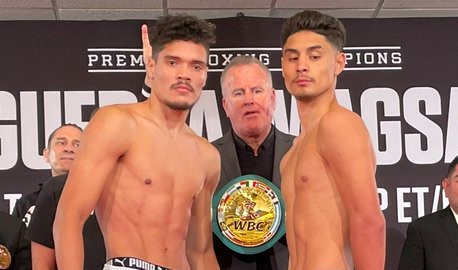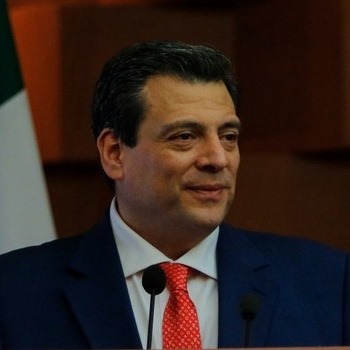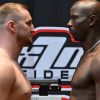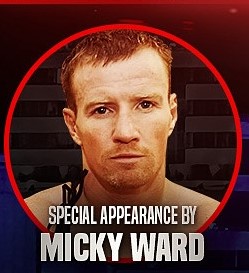Vitali Klitschko once said “the fight begins long before the first bell”, indicating that psychological warfare and dexterity can be key factors – just as important as two fists – in determining results, if used cleverly. The victor must plant the seed of doubt, he must physically and psychologically break and condition the opponent to believe that he will lose.
While some respected ring experts disagree with this notion, “A fight is won or lost in the ring,” they insist, I believe one of the most famous examples of a fight being won before the bell is the Antonio Tarver-Roy Jones rematch. All through the buildup, Tarver verbally lambasted Jones in the media over and over, for trying to avoid the rematch, making various excuses for his less than scintillating performance in their first encounter, as well as taking personal shots at Jones’s speaking manner and “country bumpkin” origins. Then during the referee’s instructions of the rematch in the ring, Tarver said he had “… a question. Do you have any excuses tonight Roy Jones?”
Of course, Jones was staggered by that mere phrase and was thus knocked out not five minutes later by a single punch. It was the first time Roy Jones had ever been destroyed in such a manner.
A few years ago I inadvertently stumbled upon another illustration of successful utilization of mental warfare. A simple, non-probing question asking Kostya Tszyu if he had ever met Mike Tyson yielded a fascinating story. “No I haven’t met him. But he’s been in the corner of Zab Judah when we fought. But actually, he was in his corner, but he knew that Zab was gonna lose.”
Whoa, I thought. Really? How did Tyson know? “I’ve got inside sources,” the former Super Lightweight champion said with a sly smile.
So you knew you would beat Judah before the fight started? How could you know? “Of course I never knew that it was gonna be in the second round. I did predict about eight or nine where he’s gonna be tired. The way I train, no one trains. And I knew if I would put pressure on him, he’s not gonna be able to withstand this pressure for a long time. He’ll make mistake. It’s all about one split-second. Boxing is a funny thing. You blink your eyes and somebody says good night to you.”
Then it hit me. There was a memorable image during fight week at Tszyu-Judah in Las Vegas, I remember Tszyu put his arm around Judah, warmly smiling at him, almost like a father to a son. Judah looked stiff and uncomfortable like he didn’t know how to react. Tszyu knew what I was talking about. “When somebody can be intimidated, I use this. Because I’m very wise person,” Tszyu smiled a devilish grin. “I know how to intimidate my opponents. I know how to play tricky stuff for them. Boxing’s not really physical, it’s all about mental. And I beat him before the fight. I think it was at the weigh-in.” Yes. And you put your arm around his shoulder. “You know what I ask him? I ask him about his daughter,” the champion continued as I tried to conceal massive curiosity. “And this was shock for him. You expect something different. When the unexpected thing comes up, he was shocked. Look. I love kids. And his daughter is (named) Destiny – I did some homework. His daughter was just born. And how’s your daughter? He expected something different before fight. And he lost himself in that question.”
This idea prompted another unique boxing memory. It was in September of 1994 when Lennox Lewis was to defend his WBC Heavyweight title against Oliver McCall. Before the fight Lewis’s trainer Pepe Correa had angered McCall with his cheap and vulgar put-downs during a press event. McCall had trained for three months at high altitude in Mexico for the fight and seemed to gain added incentive and ferocity because of Correa’s disrespectful taunting. At the final press conference, McCall removed his jacket and squared up, shouting, “You get up now, any of you, and I’ll punch you here and now. I don’t care about the fight. The whole camp’s been trying to put me down but it won’t work. When I knock out Lewis, I’ll be knocking out all of them.”
Moments later, when it was McCall’s turn to speak at the podium, he glared down at Lewis and said with not a hint of any doubt, “I’M GONNA KNOCK YOU OUT. I’M GONNA – KNOCK – YOU – OUT!” McCall’s words were eerily convincing and vehement. As Lewis looked up at McCall he almost seemed to be strangely absorbing what he was hearing.
Then on fight night McCall looked frighteningly confident and enraged as he entered the ring to the Diana Ross hit “I’m Coming Out.” Suddenly, “The Atomic Bull” began to cry. It was a most curious and astonishing sight. What the hell is he crying for? The undefeated Lewis then came out to Bob Marley’s “Crazy Bald Heads” but he looked slightly confused during the anthems and introductions, as if wondering to himself in this critical moment of the duel, Okay I’ve seen it all in my career in boxing but what the hell is wrong with this dude? Why was he crying?
Of course, as we all know, the result was a shocking two-round knockout win for McCall. A few weeks later I interviewed McCall and had to ask the question: Why were you crying on the way to the ring against Lewis in London? I don’t even have to look into my files to get the exact wording of his response, it’s forever seared in the memory banks. “Because I knew what I was about to do,” was McCall’s retort.
Just last year there was another incident which revealed the winner before it happened. It was at the final press conference for the first Kelly Pavlik-Jermain Taylor fight in September 2007. Emanuel Steward spoke before his man Taylor.
“…You can’t compare Miranda with Hopkins. (Pavlik)’s fought smaller guys who are class B’s,” Steward declared. “You just can’t compare Miranda to guys Jermain Taylor’s fought…If I was training Marvin Hagler, Thomas Hearns or Ray Robinson, I would not want to be fighting Jermain Taylor…Jermain Taylor is champion of the world. You’ve seen the guys he’s fought. It’s gonna be jumpin’ from junior high school to college. It’s too big a jump. He has too much experience. It’s going to be a tough, tough fight – for maybe one round, at the most. There’s no way (Pavlik) will win this fight. Thank you.”
It’s extremely rare to listen to Steward speak so outright dismissively about an opponent of one of his champions. It was hard to believe Pavlik had only one round of competitiveness to offer Taylor. It seemed Steward felt the need to try and psyche out Pavlik himself, with his own words of wisdom.
Moments later Pavlik and Taylor had their stare-down for the photographers. Both were calm but my eyes were drawn to Pavlik who appeared relaxed and eager to slay. And his optics were on fire, shooting super-intense laser beams. Whew, he looked devastating during that stare-down. On the other hand, Taylor just seemed to be there, listless, blank, with no energy. Then, as Taylor turned away first, Pavlik immediately wore a knowing expression on his face, as if saying, I’ve got this thing, I know it.
As Pavlik exited the stage I hustled over and was the first and only reporter to interview him:
Question: You just had the stare-down there, nice little stare-down, you seemed to gain more confidence when you turned your head, then walked away from him.
Pavlik: “Yeah. I was more confident going into the fight, but after the press conference, you know, Manny Steward, who never does that, and Jermain Taylor sitting there and then…”
Question: Steward seemed to be trying to intimidate you, psyche you out himself.
Pavlik: “Yeah, they’re worried. They’re concerned. Emanuel Steward don’t talk like that. But after the last couple of fights with his fighter, I think he has to get in his head a little bit and, you know, get him motivated, so. But either or, I’m glad it goes like that. I love when they run their mouths.”
Question: What did you see in Jermain’s eyes in that stare-down?
Pavlik: “I see concern. I see a lot of concern in the eyes. I see a lot – no self confidence at all. I think right now the talk is going on because they are concerned.”
Question: What’s going to be the key in this fight?
Pavlik: “Pressure. My conditioning. My strength. And you know what, actually the main thing is them underestimating my speed. Underestimating…they’re going to be very surprised come fight night.”
The rest was history. Was the fight won by Pavlik in the seventh round? Or at the press conference? Some respected ring observers and former combatants have insisted to me that no fight is ever won by words or by pre-fight antics. But the art of psychological warfare on occasion – or perhaps more frequently than one might expect – does indeed play a critical role in determining victory and defeat in major world title bouts.
“No two men can be half an hour together, but one shall acquire an evident superiority over the other.” –Samuel Johnson






